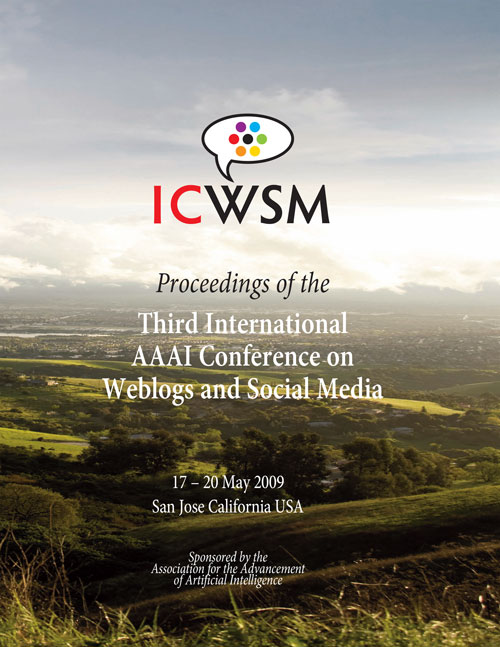Emotionality in Text as Predictor of Behavior
DOI:
https://doi.org/10.1609/icwsm.v3i1.14003Abstract
The present study demonstrates how the emotional content of search terms and their eventual results affects the breadth of a users’ search for information. We observed the quantity of results selected by users. In a random sample of queries from the Microsoft LiveSearch search engine, 7,021 queries were evaluated using a dictionary with valence and arousal ratings. The number of search results selected was regressed on the valence and arousal of the search terms. We additionally observed users’ selection of results based on the position in the search results. Using the same sample, result placement was regressed on the valence and arousal level of the search terms. Results from quantity of search results selected shows that negative search terms result in an overall larger number of selections made than positive search terms. For position-based selections, we found that the selection of the first result is affected by an interaction of valence and arousal. Specifically, users were unaffected by the arousal level of negative search terms, but appeared to be more likely to search deeper on the page when they searched for less arousing positive information. These results suggest that the emotional content associated with a search query may lead users to be more or less discriminating in their acceptance of information and may influence the impact of placement on result selection.

